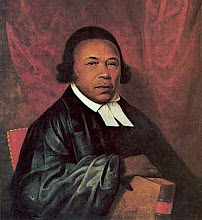THE BOOK CORNER
Passing Strange: A Gilded Age Tale of Love and Deception Across the Color Line
By Martha A. Sandweiss
After reading this book, I don't know what was strange, a famous person shadow double-life or society's hostile attitude on mixed marriage. Either way, the title 'Passing Strange', is appropriate; it means 'SURpassing strange' , an old phrase enjoying a comeback these days. In a nutshell, an internationally known and respected white scientist, Clarence King, a close personal friend of the US Secretary of State, posed as a black porter so he could marry the girl of his dreams, a black lady from NYC named Ada. To do this, King consistently lied to both his white friends and family and his black (or mixed) family for years, and went on extended work trips passing between cultures to make enough money to pull it off. He couldn't reveal to anyone on either side of the color line what he was doing or his world would have fallen apart. It was hard to relate to this since today not even an eye is batted at a mixed marriage. So the shadow life and racial attitudes are what this story is about, and the fall-out of a mixed marriage that played out for generations later.
Mixed marriages were simply not socially acceptable in those days (late 1800's and early 1900's). Hard to imagine today when even the US President is of mixed origins. So, King must have been an exceptionally good liar to pull it off. Also, he was an extremely engaging type, one who had a 'genius for friendship' as one of his friends put it. His friends faithfully loved his though it often cost them lots of money he borrowed from them and could not pay back.
This stunt wouldn't have worked in this era of Youtube and 24-hour news. But then the societies of black and white were so segregated and the news reporting so limited that even a famous person could disappear and appear at will.
I found myself wishing that King had had the courage to make his marriage public. But that would have probably ruined his life and many others. If he had been open about it, he would have been a real hero instead of a shadow figure. And it would not have taken over a hundred years to hear about him.
Review by "Roman 8:1" (Baltimore)
Subscribe to:
Post Comments (Atom)


No comments:
Post a Comment